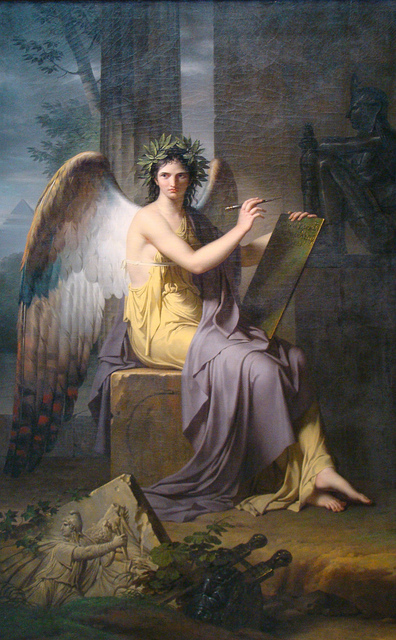All novelists take liberties when they write historical fiction, drawing on their imaginations and from the raw material of the past. The question, then, is: how much should they stray from the historical record? How much should they rearrange facts, events, and timing to suit the needs of their plot?
For some postmodern authors, the very idea of “facts” or of a “historical record” is an illusion. They’ll blithely deconstruct and distort because they argue that what we call history is a subjective narrative by and for the powerful. (Include E. L. Doctorow and Robert Coover, among others, in this camp). Along those lines, the novelist Don DeLillo has written: “There is pleasure to be found, the writer’s, the reader’s, in a version of the past that escapes the coils of established history and biography and that finds a language, scented, dripping, detailed, for such routine realities as sex, weather and food, for the ravel of a red thread on a woman’s velvet sleeve.”
For counterfactual historical fiction (“what if Hitler had won the Second World War?”), there’s also a heavy reliance on elaborate fabrication. For example, novels like Robert Harris’ Fatherland or Dominion by C. J. Sansom—which all imagine a world altered by a Nazi victory—change history and then consider the ripple effect.
I prefer historical fiction grounded in reality. I like reading novels that are well researched about a given period of time and that are (for the most part) accurate in their depiction of events and personalities. It’s a more engaging way to learn about the past—Rudyard Kipling claimed that if history were taught in the form of stories, it would never be forgotten. When authors stray too far from the record, or when their dialogue includes jarring contemporary phrases, I feel let down.
In writing historical fiction, I try to avoid errors of fact and also of interpretation on matters small and large. So I’ve spent time researching the cost of a pay phone call in New York City in 1949, and the footwear of Manchu women in Beijing in 1794. Details matter, because they help create a sense of time and place.
Sometimes there are questions without clear answers, or where historians disagree. I’ve encountered some of these unresolved questions during my research. Why did the French Revolution descend into savagery in the summer of 1793, into the Terror? Could there have been a different, and peaceful ending, to the Hungarian Uprising of 1956?
In the end, it’s a balancing act. An overemphasis on the historical can weigh a novel down; a lightly-researched book can feel weightless, untethered to historical reality. The trick is to breathe life into the past—a different country.
Literary scholar Daniel Aaron had it right: “Historical fiction isn’t history in the conventional sense and shouldn’t be judged as such. The best historical novels are loyal to history, but it is a history absorbed and set to music.”
©2015 by Jefferson Flanders
